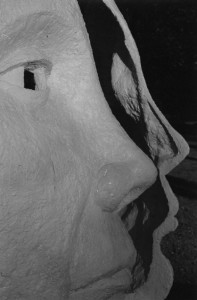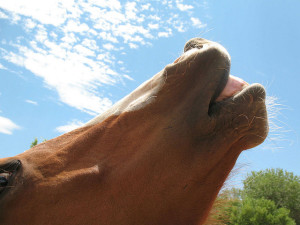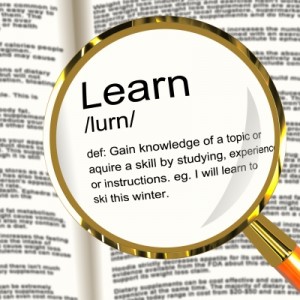For the final two weeks of my voice and speech class, each of us was meant to work with a specific text that we’d chosen. Not more than a few lines. My teacher said this could be dialogue, a presentation, poetry, song lyrics… whatever. The main criterion was the text should be something we knew well… and that each of us was comfortable delivering in class.
I began thinking about the text a couple of weeks ago when my teacher reminded us to have it ready. Almost immediately, I also began to think about how I could avoid the lines that would not stop going through my head. Surely, I thought, I can’t be comfortable with those words…
I’ve been circling this thought for weeks. The words that I can’t shake are a song lyric, beautiful in its phrasing and heavy with emotional freight. They are awful and beautiful at the same time. Awful, because I want with every fiber of my being to be the one who wrote them. Beautiful, because even without music, they sing.
And he was always much more human than he wished to be
Really, the verses pursue me. I’ve tried isolating bits of the lyric from the rest: experimenting with just two lines to use in class. Thinking, if I separate these threads, these veins that bleed into one another, the smaller fragment will be easier to contain. Easier to carry.
My mistake.
So I skulked the stacks in the drama and poetry sections of the library, in search of something memorable — something I could easily remember — which was also easier to carry, and easier to hear.
What I checked out was the following:
- The Essential Dickenson (Emily)
- Three plays by David Mamet
So much for happiness and froth. I wonder what this says about me…
All of my selections proved to be difficult at meeting my primary search criterion: text that was lighter than the haunted verses that wouldn’t leave me alone.
Emily is memorable, but her poems have a strength of structure that conspires against me. I’ve always had difficulty reading poetry aloud. I have to fight against being held hostage by the end of the line. Emily’s poetry is cadences of pure tensile strength… How can a little weakling like me begin to play with her text?
Mamet, on the other hand, has easy, flowing dialogue. But it’s nearly impossible to find speech that doesn’t carry dangerous, spiky undercurrents, even in the comedies.
Despite — or perhaps because of — the musculature in Emily’s poetry, I found it relatively easy to remember her verse. I really liked the start of this poem, particularly because I am a writer:
She dealt her pretty words like Blades–
How glittering they shone–
And every One unbared a Nerve
Or wantoned with a Bone–
The power of words! Who wouldn’t love to declaim those lines? Up until the very moment I stood up in class I was convinced those would be the words that passed my lips.
Didn’t happen that way. Instead, I went with a bit from the beginning of Eat, Pray, Love by Liz Gilbert. The book has a wonderful, gentle sense of humor, and I thought I could use that rather than the bare intensity in Emily’s lines. Back to eschewing the heavy stuff.
In the end, I chose the power verses for myself, but kept them secreted from the audience. I was afraid of the strength of those verses — could I contain them, could I embody them… could I handle their impact on the people who would hear me speak?
======
What about you — can you think of a time when you pulled back from your own power?



